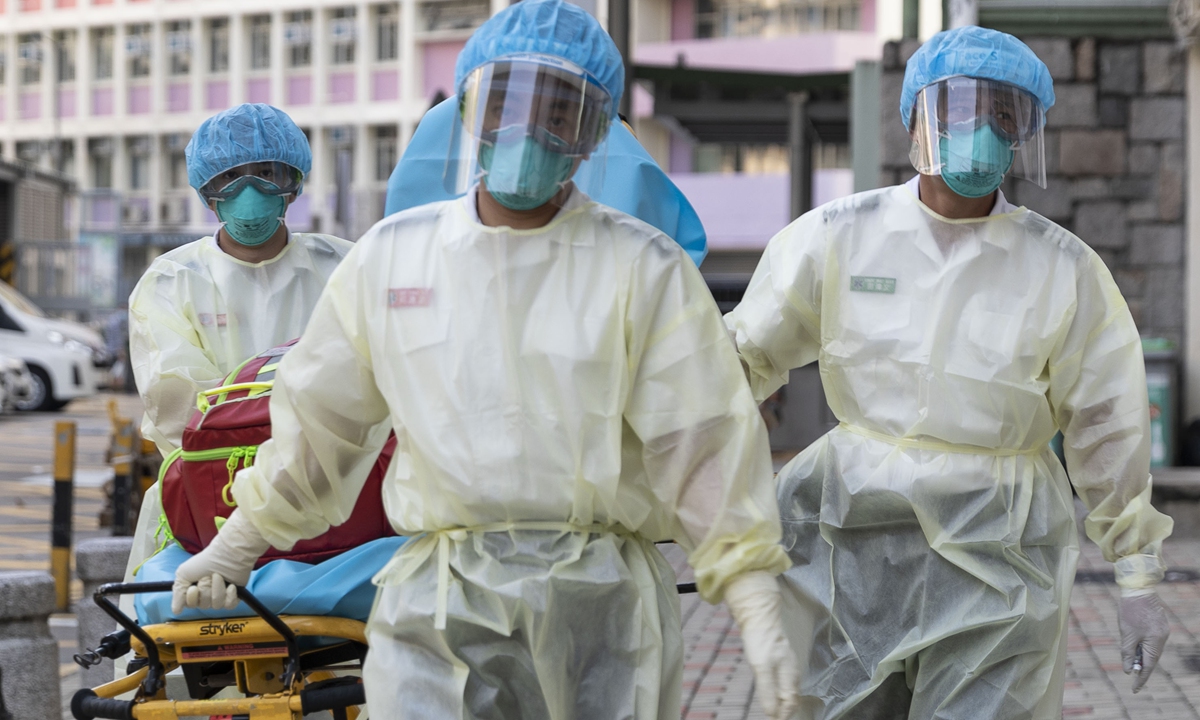More COVID-19 reinfection cases likely to emerge as antibody levels wane faster than expected
By Liu Caiyu Source: Global Times Published: 2020/8/26 20:01:21

Medical staff wearing personal protective equipment as a precautionary measure against COVID-19 approach Lei Muk Shue care home in Hong Kong on Sunday. The city has reported 4,683 total infections since the coronavirus pandemic began. Photo: AFP
The immune protective effect gained from previous COVID-19 infections could wane faster than expected, resulting in a second infection, experts warned, after more reinfection cases were reported after one in Hong Kong.
Experts reached by the Global Times said more similar cases are likely to emerge, and reminded recovered patients should follow anti-epidemic measures or obtain long-term immunity through repeated vaccinations, as immunity to the coronavirus decays faster than expected.
After the first known reinfection case in Hong Kong, Belgium and the Netherlands also reported cases of recovered patients getting infected a second time.
Recovered COVID-19 patients have immunity that usually lasts for six to 12 months, but the level of antibodies could wane faster than expected for various reasons, Jin Dongyan, a biomedical professor at the University of Hong Kong, told the Global Times on Wednesday.
The Hong Kong patient got infected again roughly five months after having recovered, and the Belgian patient did so after three months.
Wuhan-based virologist Yang Zhanqiu attributed the low level of antibodies resulting in reinfection to different strains of virus. "The cross-protection immunity effect could be weak or zero when it comes to different virus strains," Yang said.
In the Hong Kong case, the man was showing certain cross-protection immunity, despite being infected by different virus strains, Jin said.
Another possible cause of reinfection could be an individual's weak immune system, which would have nothing to do with the level of antibodies. If a recovered patient falls ill and has weaker immunity levels than usual, he could get infected again, a Beijing-based immunologist told the Global Times on condition of anonymity on Wednesday.
"Besides a person's overall health situation and antibody level (whether from natural infection or from vaccination), immunity also varies in accordance with age, nutrition, fatigue and medicine usage," he said.
More reported reinfection cases suggest that it might be a trend and countries need to handle it accordingly. Some 23 million people have been infected worldwide, and Jin noted they should not think they are free from the virus, suggesting them observe anti-epidemic methods or gain long-term antibodies through repeated vaccinations.
But experts reassured the public that based on the Hong Kong case, reinfected patient shows lighter symptoms.
The Hong Kong case had the viral load that could generate acute symptoms but showed light symptoms. Jin revealed that the patient generated antibodies faster after the second infection than the first time.
Posted in: SOCIETY,CHINA FOCUS